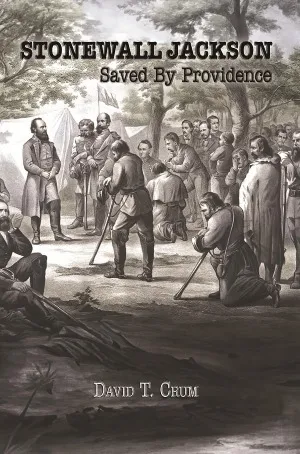Book: David T. Crum, Stonewall Jackson: Saved by Providence (Shotwell Publishing, South Caroline, 2024), 165 pages, £16 (through Amazon).
Dr David T. Crum is an Assistant Professor of History at Truett-McConnell University in Cleveland, Georgia. He has a special interest in Christianity and Warfare and has recently co-founded the Institute of Christianity and Warfare, whose website carries some interesting material: https://christianityandwarfare.org.
The work noticed here is a short account of the life of the famous Confederate general, Thomas “Stonewall” Jackson (1824-1863), with particular emphasis on Jackson’s religious experience. As might be expected, there are several substantial biographies of Jackson already – notably one by Robert Lewis Dabney (1866) who knew Jackson personally – but none that focus directly on the religious aspects of Jackson’s life. There is an interesting account, for example, of how Jackson came to Sabbatarian views through the influence of his first wife while they were on honeymoon.
The author writes from a Reformed perspective and is in full sympathy with his subject, although he expressly distances himself from Jackson’s position on slavery, which he discusses at some length. Jackson came to own a very small number of slaves through marriage to his second wife, and the limited evidence suggests that he was a strict but kind master – as one would expect of an eminent Christian general.
Jackson’s connection with the Confederates and slavery has made the publication of this book difficult in the present political climate in the US, and the larger religious publishers are not prepared to touch anything on a subject like this. The author is to be commended for facing the various issues in Jackson’s life which are regarded as so very sensitive in the present day. As in Britain, the extreme attitude to race and slavery that has been adopted in the US seems really to be a device for trying to obliterate the Christian past of the country, as if Christianity and slavery were inextricably intertwined and should be buried together. Maintaining the knowledge of our Christian heritage, and preserving the reputations of Christians – with due recognition of their faults, is an important part of the work of our generation, and we are glad that Dr Crum is engaging in it on his side of the Atlantic.

